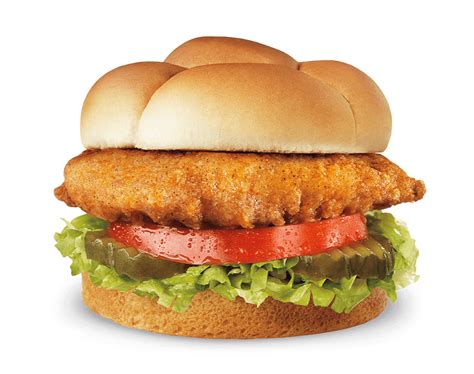
Airport restaurants at Ronald Reagan Washington National Airport (DCA) are now subject to price caps, ensuring travelers pay no more than they would at equivalent establishments outside the airport, following a new law passed in Virginia. The Metropolitan Washington Airports Authority (MWAA), which oversees DCA and Washington Dulles International Airport (IAD), is implementing the measure to combat inflated pricing and improve customer satisfaction.
Travelers at Ronald Reagan Washington National Airport (DCA) can expect fairer prices at restaurants and concession stands thanks to a recently enacted Virginia law targeting inflated airport costs. The legislation mandates that airport vendors charge prices comparable to those found at similar establishments outside the airport. The Metropolitan Washington Airports Authority (MWAA), the governing body for both DCA and Washington Dulles International Airport (IAD), is now tasked with enforcing these new regulations.
The move addresses longstanding complaints from passengers who have often felt captive to exorbitant prices for food and beverages within airport terminals. “This is a win for travelers who have long been frustrated by the high cost of airport food and drinks,” said one consumer advocate familiar with the legislation. “The new law ensures that airport restaurants operate with greater transparency and fairness.”
MWAA is currently developing specific procedures to monitor and enforce the price caps. This includes comparing prices at airport restaurants with those at comparable locations in the surrounding metropolitan area. Vendors found to be in violation of the law will face penalties, potentially including fines and lease termination.
The impetus for the legislation stemmed from growing public awareness of the price discrepancies between airport and non-airport restaurants. Social media platforms and travel blogs have increasingly highlighted instances of extreme price gouging, prompting lawmakers to take action. The law seeks to level the playing field for consumers, providing them with more affordable options while traveling.
“We are committed to providing a positive experience for all travelers at our airports,” said a spokesperson for MWAA. “The implementation of this new law is a crucial step in ensuring that our restaurants offer fair and competitive pricing.” The authority is working closely with airport vendors to ensure a smooth transition to the new pricing structure.
The new law is not just about price caps; it also aims to increase transparency in airport pricing. Restaurants are now required to clearly display their prices and provide detailed information about their pricing policies. This will enable travelers to make more informed decisions about where to dine while at the airport.
The legislation has been met with mixed reactions from airport vendors. Some have expressed concerns about the impact on their profitability, while others have welcomed the opportunity to improve customer satisfaction and build goodwill. MWAA is working to address these concerns and find solutions that work for both vendors and travelers.
The implementation of the price caps is expected to have a significant impact on the overall dining experience at DCA. Travelers can look forward to more affordable and transparent pricing, which will make their airport experience more enjoyable and less stressful. The move could also set a precedent for other airports across the country, potentially leading to similar legislation in other states.
The new law aims to address a common pain point for travelers: feeling financially exploited while navigating airports. By ensuring price parity, the legislation seeks to create a more equitable and customer-friendly environment within DCA. The success of this initiative could pave the way for similar regulations at other airports nationwide.
The bill reflects a broader trend of increased scrutiny of airport pricing practices. Consumer advocacy groups have long argued that airports, as quasi-monopolies, have a responsibility to ensure fair pricing for their customers. This new law represents a significant victory for these advocates and a step towards greater consumer protection in the travel industry.
The implementation of the law will likely involve several phases, starting with the establishment of a baseline for pricing at comparable restaurants outside the airport. MWAA will then conduct regular audits to ensure that airport restaurants are complying with the price caps. The authority will also establish a system for travelers to report suspected violations of the law.
The long-term impact of the price caps on airport revenue remains to be seen. Some analysts predict that the lower prices could lead to increased sales volume, offsetting any potential reduction in profit margins. Others are more cautious, warning that the law could discourage some restaurants from operating at the airport.
The new law is a significant development for the airport industry and a potential game-changer for travelers. By addressing the issue of inflated airport pricing, the legislation aims to create a more fair and transparent marketplace for consumers. The success of this initiative could have far-reaching implications for the future of airport dining.
The legislation also addresses concerns about the quality of food and service at airport restaurants. By creating a more competitive environment, the law encourages restaurants to improve their offerings in order to attract customers. This could lead to a higher overall standard of dining at DCA.
MWAA is committed to working with airport vendors to ensure a successful implementation of the new law. The authority is providing guidance and support to help restaurants adapt to the new pricing structure. The goal is to create a win-win situation for both vendors and travelers.
The law is not intended to stifle innovation or discourage restaurants from offering premium products. Restaurants are still free to offer higher-priced items, as long as they also provide more affordable options that comply with the price caps. The goal is to ensure that travelers have a range of choices at different price points.
The implementation of the price caps is expected to be a complex process, but MWAA is confident that it can be done effectively. The authority has a dedicated team of professionals working on the project, and it is committed to providing regular updates to the public.
The new law is a testament to the power of consumer advocacy. It demonstrates that when travelers speak out about unfair pricing practices, lawmakers will listen. The success of this initiative should encourage consumers to continue to demand greater transparency and fairness in the travel industry.
The legislation represents a significant shift in the way that airports are regulated. It signals a growing recognition that airports have a responsibility to protect the interests of their customers. This could lead to further reforms in other areas of airport operations, such as parking, retail, and transportation.
The new law is not without its challenges. Some critics argue that it could be difficult to enforce the price caps effectively, given the wide variety of restaurants and menu items at the airport. Others are concerned that the law could lead to a decline in the quality of food and service.
Despite these challenges, MWAA is committed to making the law work. The authority is working closely with airport vendors to address any concerns and ensure a smooth implementation. The goal is to create a more fair and enjoyable experience for all travelers at DCA.
The legislation is a positive step towards improving the travel experience for millions of passengers who pass through DCA each year. By addressing the issue of inflated airport pricing, the law will help to make travel more affordable and less stressful. The success of this initiative could serve as a model for other airports across the country.
The law specifically addresses the perception of price gouging at airports, a common complaint among travelers. By capping prices, the legislation aims to restore confidence in airport dining and ensure that travelers feel they are being treated fairly.
The impact of the new law will be closely monitored by the travel industry. Other airports may consider implementing similar measures if the DCA initiative proves successful. The legislation could also inspire further reforms in other areas of airport operations, such as retail and parking.
The law represents a significant victory for consumer rights advocates who have long campaigned for greater transparency and fairness in airport pricing. The success of this initiative demonstrates the power of collective action and the importance of holding airports accountable.
The implementation of the price caps is expected to be a gradual process. MWAA will work with airport vendors to ensure that they have adequate time to adjust their pricing strategies. The authority will also provide training and support to help restaurants comply with the new regulations.
The law is not intended to be punitive. MWAA’s primary goal is to ensure that airport restaurants are charging fair prices. The authority will work with vendors to address any violations of the law and to help them comply with the regulations.
The legislation is a response to a growing public outcry over inflated airport pricing. Social media platforms have been flooded with complaints from travelers who feel they have been unfairly charged for food and beverages at airports. The new law is an attempt to address these concerns and to restore public trust in the airport dining experience.
The impact of the price caps on airport employment is uncertain. Some analysts predict that the lower prices could lead to increased sales volume, which could create new jobs. Others are more cautious, warning that the law could lead to job losses if restaurants are forced to reduce their staff.
MWAA is committed to minimizing any negative impact on airport employment. The authority is working with airport vendors to find ways to mitigate the potential impact of the law on their workforce. The goal is to ensure that the new regulations do not lead to job losses.
The law is a reflection of a broader trend of increased government regulation of the airport industry. In recent years, lawmakers have become increasingly concerned about the impact of airport operations on consumers and the environment. This trend is likely to continue in the years ahead.
The implementation of the price caps is expected to be a collaborative effort. MWAA will work closely with airport vendors, consumer advocacy groups, and other stakeholders to ensure that the new regulations are effective and fair. The goal is to create a system that works for everyone.
The law is a positive step towards creating a more customer-friendly airport environment. By addressing the issue of inflated airport pricing, the legislation will help to make travel more enjoyable and less stressful. The success of this initiative could serve as a model for other airports across the country.
The new regulations will require airport restaurants to be more transparent about their pricing policies. Restaurants will be required to clearly display their prices and to provide detailed information about their pricing strategies. This will enable travelers to make more informed decisions about where to dine at the airport.
The law is not intended to stifle competition among airport restaurants. Restaurants will still be free to compete on the basis of quality, service, and atmosphere. The goal is to ensure that competition is based on factors other than price gouging.
The implementation of the price caps is expected to be a learning process. MWAA will monitor the impact of the new regulations and make adjustments as needed. The authority is committed to ensuring that the law is effective and fair.
The law is a response to a growing sense of frustration among travelers who feel they are being taken advantage of by airport restaurants. The new regulations are an attempt to address this frustration and to restore public trust in the airport dining experience.
The impact of the price caps on airport concession revenue is uncertain. Some analysts predict that the lower prices could lead to increased sales volume, which could offset any potential reduction in revenue. Others are more cautious, warning that the law could lead to a decline in concession revenue.
MWAA is committed to minimizing any negative impact on airport concession revenue. The authority is working with airport vendors to find ways to mitigate the potential impact of the law on their revenue streams. The goal is to ensure that the new regulations do not lead to a decline in concession revenue.
The law is a reflection of a broader trend of increased consumer awareness of pricing practices. In recent years, consumers have become increasingly savvy about pricing and are more likely to challenge businesses that they believe are charging unfair prices. This trend is likely to continue in the years ahead.
The implementation of the price caps is expected to be a challenging process. MWAA will face a number of obstacles, including resistance from airport vendors, difficulty in determining comparable prices, and the need to monitor compliance. However, the authority is committed to overcoming these challenges and to making the law work.
The law is a positive step towards creating a more equitable airport environment. By addressing the issue of inflated airport pricing, the legislation will help to ensure that all travelers have access to affordable food and beverages. The success of this initiative could serve as a model for other airports across the country.
The new regulations will require airport restaurants to be more accountable to their customers. Restaurants will be required to respond to customer complaints and to address any concerns that are raised. This will help to improve the overall customer experience at the airport.
The law is not intended to be a quick fix. It is a long-term solution to the problem of inflated airport pricing. The implementation of the price caps will take time, and it will require ongoing monitoring and enforcement. However, the authority is committed to making the law work and to creating a more fair and transparent airport dining experience.
The law aims to end the days of exorbitant markups on everyday food and drink items at DCA, bringing relief to weary travelers. The impact and effectiveness will be closely watched by airports and passengers nationwide.
Frequently Asked Questions (FAQ)
1. What does the new law at Ronald Reagan Washington National Airport (DCA) do?
The new law mandates that restaurants and concession stands at DCA charge prices that are comparable to those found at similar establishments outside the airport. This is aimed at preventing inflated pricing and ensuring fair costs for travelers.
2. Who is responsible for enforcing the new price regulations at DCA?
The Metropolitan Washington Airports Authority (MWAA), which oversees both DCA and Washington Dulles International Airport (IAD), is responsible for implementing and enforcing the new price regulations.
3. How will MWAA ensure that airport restaurants are complying with the price caps?
MWAA will develop procedures to monitor and enforce the price caps, which includes comparing prices at airport restaurants with those at comparable locations in the surrounding metropolitan area. Regular audits will be conducted, and a system for travelers to report suspected violations will be established.
4. What happens if an airport restaurant is found to be in violation of the new pricing law?
Vendors found to be in violation of the law will face penalties, which may include fines and, in more severe or repeated cases, lease termination.
5. Will the new law affect the variety of food and beverage options available at DCA?
The law is not intended to stifle innovation or prevent restaurants from offering premium products. Restaurants can still offer higher-priced items, provided they also offer more affordable options that comply with the price caps. The goal is to provide travelers with a range of choices at different price points.









